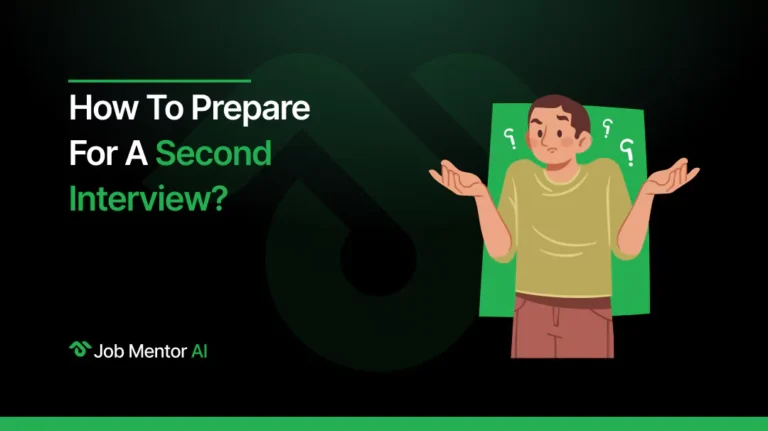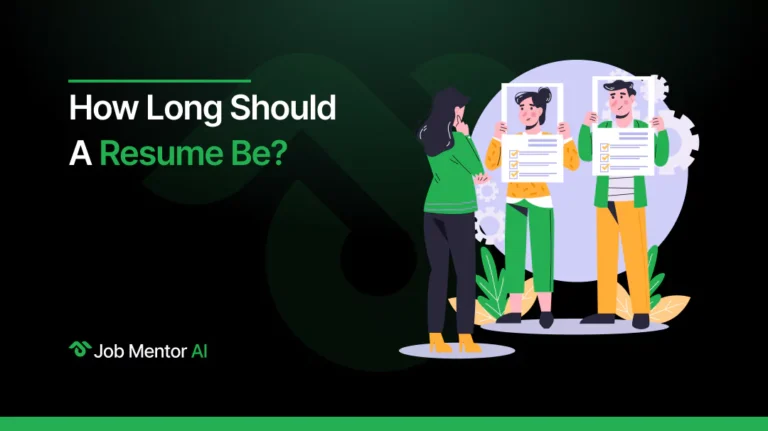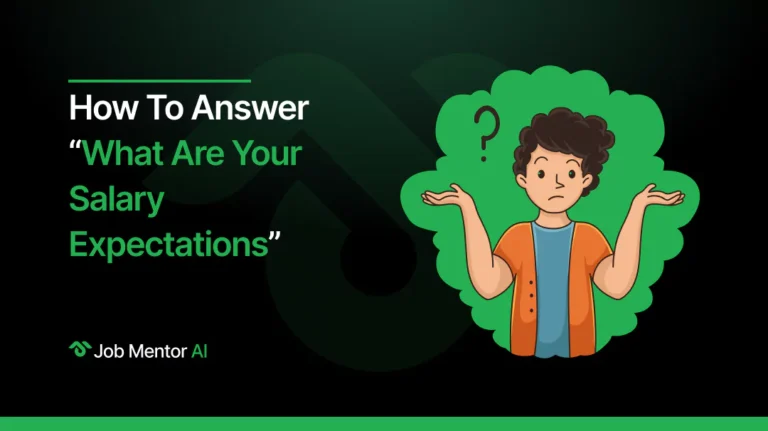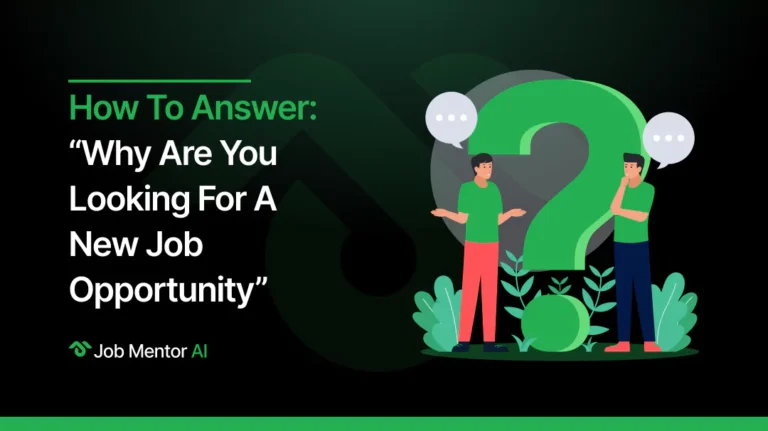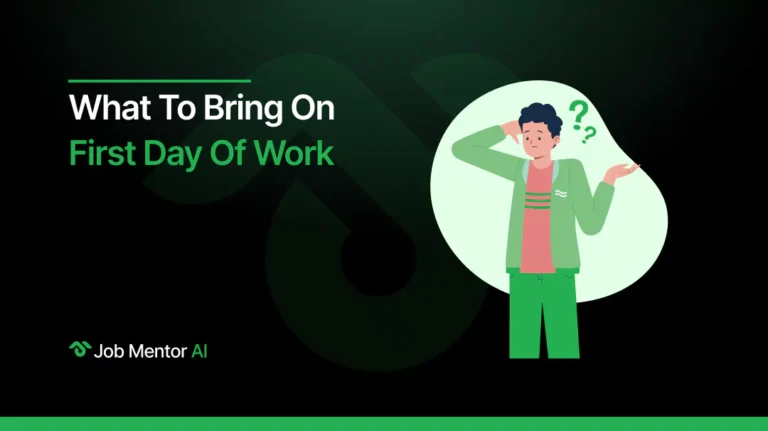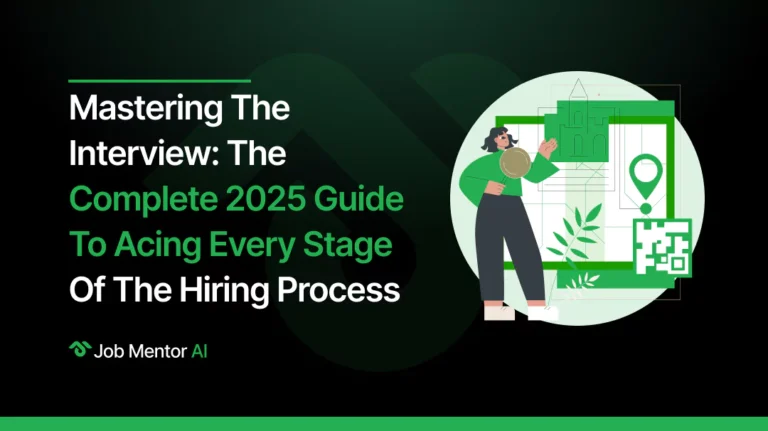When it comes to hiring the best candidates, prescreening interview questions are essential. They help streamline the process by filtering out candidates who may not be the best fit for the role before the formal interview begins. Whether you’re a recruiter or a hiring manager, having a set of well-thought-out prescreening interview questions is crucial to saving time and ensuring that only the most qualified candidates move forward.
In this blog, we’ll discuss 30 common prescreening questions, with sample answers, and how they can help you assess whether a candidate is a good fit. Plus, we’ll cover how tools like our Mock Interview Practice can assist you in streamlining the prescreening process
What Are Prescreening Interview Questions?
Prescreening interview questions are the first step in the hiring process and typically occur before the in-depth interviews. They are designed to help you gauge a candidate’s basic qualifications, skills, and cultural fit. These questions usually cover aspects such as their work experience, motivation, and availability.
By asking the right interview screening questions, you can identify red flags early, allowing you to spend more time on candidates who are a better fit for the position.
Types of Screening Interview Questions
Different types of screening interview questions reveal different kinds of information about job candidates. These include:
Basic information questions
Ask basic screening questions at the start of the interview to warm up the candidates and get to know them a little better. These questions are usually about their career aspirations, salary expectations, and why they want to join the company.
Behavioral interview questions
Help recruiters assess a candidate’s attitude in work settings and better understand their skills and qualities. Questions like this typically start with, “Give me an example of…”
Situational interview questions
Ask candidates to describe a time (real or hypothetical) when they dealt with a specific challenge at work. The aim is to help recruiters assess a candidate’s soft skills, such as time management, conflict resolution, and interpersonal communication.
Technical or skill-related interview questions
Help assess a candidate’s specific technical skills or knowledge. These include questions on programming, algorithms, software tools, and other industry-specific knowledge.
Why Are Prescreening Questions Important?
Prescreening questions provide the following benefits:
- Save Time: By eliminating unsuitable candidates early, you can focus on top applicants.
- Identify Skills and Qualifications: Ensure that candidates meet the minimum requirements before advancing them.
- Assess Cultural Fit: Understand whether a candidate will align with your company’s values and team dynamics.
- Prepare for Phone Interviews: Prescreening questions can help set the stage for more in-depth phone or in-person interviews.
For instance, if you’re preparing for a phone interview, using prescreening questions allows you to quickly assess the candidate’s suitability.
30 Prescreening Interview Questions with Answers
Here are 30 effective prescreening questions you can ask to gauge a candidate’s qualifications. These questions cover a wide range of topics, including skills, experience, and motivation.
Basic Information Questions
1. Can you tell me about yourself?
Sample Answer:
“I have experience in different industries, focusing on continuous learning and problem-solving. I enjoy working in environments where I can contribute my skills and grow professionally.”
2. What interests you about this opportunity?
Sample Answer:
“This opportunity aligns with my skills and interests, allowing me to apply my knowledge while also learning new things.”
3. Why are you looking for a new opportunity?
Sample Answer:
“I am seeking a role where I can take on new challenges, grow professionally, and make a meaningful impact.”
4. What are your salary expectations?
Sample Answer:
“I am open to discussing compensation based on industry standards and the responsibilities involved.”
5. When would you be available to start?
Sample Answer:
“I can start within two weeks after finalising the details.”
6. Are you open to remote, hybrid, or on-site work?
Sample Answer:
“I am flexible and open to different work arrangements, depending on the expectations and requirements.”
7. What do you know about our organisation?
Sample Answer:
“I understand that your organisation values innovation and collaboration. I appreciate the work you do and am excited about the possibility of contributing.”
Behavioral Questions
8. Tell me about a time you faced a challenge at work.
Sample Answer:
“I encountered a project delay due to unforeseen issues. I quickly analysed the situation, collaborated with my team to adjust the plan, and successfully completed the task within the revised timeline.”
9. How do you handle tight deadlines?
Sample Answer:
“l’ll prioritise tasks, break down work into smaller steps, and stay focused to meet deadlines efficiently.”
10. Can you give an example of when you worked as part of a team?
Sample Answer:
“I worked on a group project where everyone had different ideas. By actively listening and aligning our goals, we successfully completed the project and achieved great results.”
11. What motivates you to perform well?
Sample Answer:
“I am motivated by challenges, opportunities to learn, and the satisfaction of completing tasks effectively.”
12. Describe a situation where you had to adapt to change.
Sample Answer:
“When a new system was introduced, I quickly learned how to use it, trained my team, and ensured a smooth transition.”
13. How do you manage multiple tasks at once?
Sample Answer:
“I use task management tools, prioritise based on urgency, and ensure each task gets the required attention.”
Situational Questions
14. What would you do if you disagreed with a team decision?
Sample Answer:
“I would share my perspective respectfully, listen to others, and work towards a solution that benefits the team.”
15. How would you handle a difficult client or colleague?
Sample Answer:
“I would remain professional, listen to their concerns, and find a solution that maintains a positive relationship.”
16. If you made a mistake, how would you handle it?
Sample Answer:
“I would take responsibility, correct the mistake, and find ways to prevent it from happening again.”
17. How do you handle unexpected challenges?
Sample Answer:
“I stay calm, assess the situation, and take necessary steps to resolve the issue efficiently.”
Technical or Skill-Related Questions
18. Do you have experience with specific tools or software?
Sample Answer:
“Yes, I have used different tools for project management, communication, and data analysis, adapting quickly to new technologies when needed.”
19. Can you describe a time when you had to learn something quickly?
Sample Answer:
“I once had to learn a new system for an urgent project. I took online tutorials, sought guidance, and quickly applied my knowledge to complete the task.”
20. How do you stay updated with industry trends?
Sample Answer:
“I follow industry news, take online courses, and engage in professional networks to keep up with trends.”
21. What’s an achievement you’re proud of?
Sample Answer:
“I successfully completed a project that led to improved efficiency, meeting key targets and positively impacting the organisation.”
Cultural Fit Questions
22. What type of work environment do you prefer?
Sample Answer:
“I thrive in an environment where teamwork, innovation, and continuous learning are encouraged.”
23. How do you prefer to receive feedback?
Sample Answer:
“I appreciate direct and constructive feedback that helps me improve and grow professionally.”
24. What are your interests outside of work?
Sample Answer:
“I enjoy activities that help me stay creative and active, such as reading, travelling, and outdoor sports.”
25. How do you handle constructive criticism?
Sample Answer:
“I view it as an opportunity to improve, take it positively, and apply it to future tasks.”
26. What do you value most in a workplace?
Sample Answer:
“A supportive and collaborative culture where people are encouraged to share ideas and grow.”
Job-Readiness Questions
27. What makes you a strong candidate for this opportunity?
Sample Answer:
“I bring relevant experience, a strong work ethic, and the ability to adapt quickly to new challenges.”
28. Have you worked remotely before? If so, how do you stay productive?
Sample Answer:
“Yes, I maintain productivity by setting clear goals, following a structured schedule, and staying connected with the team.”
29. How do you approach problem-solving?
Sample Answer:
“I break down the issue, gather relevant information, and explore different solutions before making a decision.”
30. Do you have any questions for us?
Sample Answer:
“Yes, I’d love to know more about the team structure and the opportunities for professional development.”
How AI Can Enhance Your Prescreening Process
Incorporating AI Interview Copilot can enhance your prescreening process. AI can quickly sift through resumes, scan for keywords, and even conduct initial assessments. This can reduce human error and ensure that only the most qualified candidates are selected for further interviews.
Using an AI Assistant, recruiters can streamline the process and save time. AI can help generate interview questions tailored to the role, making the prescreening process even more efficient.
For instance, tools like Mock Interview Practice can help candidates prepare for your prescreening questions, ensuring they are well-prepared for the next steps.
More Prescreening Interview Questions
Where do you see yourself in five years?
Sample Answer:
“I see myself continuing to grow within the company, taking on more leadership roles, and contributing to the company’s long-term success.”
What motivates you to do your best work?
Sample Answer:
“I am driven by challenges and the opportunity to solve complex problems. The satisfaction of seeing a project come to fruition motivates me to give my best.”
How do you stay organized and manage multiple tasks?
Sample Answer:
“I use project management tools like Trello to keep track of tasks and deadlines. I prioritize my tasks based on urgency and importance.”
What do you like to do outside of work?
Sample Answer:
“I enjoy reading, hiking, and volunteering with local community organizations. I believe in maintaining a work-life balance to stay refreshed and creative.”
What would you bring to this role that others may not?
Sample Answer:
“I bring a fresh perspective and a passion for innovation. I’m always looking for new ways to improve processes, and I have a track record of bringing creative solutions to the table.”
Enhancing Your Prescreening Process with AI Tools and Mock Interviews
AI Interview Copilot
- Use AI Assistant to automate interview question generation, filter resumes, and analyze responses.
- Helps you quickly identify top candidates by streamlining the process.
- For more details, check out our guide on AI Interview Copilot.
Mock Interview Practice
- Simulate real interview scenarios using mock interview practice to assess candidate readiness.
- Allows candidates to refine their answers and presentation skills.
- Explore more in our post on Mock Interview Strategies.
Questions and Answers Generator
- Automatically generate tailored questions with a Questions and Answers Generator for efficiency.
- Saves time while ensuring relevant questions for both technical and non-technical roles.
- Learn more about automating interview questions in our guide on Questions and Answer Generator.
Common Mistakes to Avoid During Prescreening
While asking prescreening questions, make sure to avoid the following mistakes:
- Asking Discriminatory Questions: Avoid questions about race, religion, gender, or marital status.
- Being Too Vague: Ask clear and specific questions that allow candidates to showcase their skills.
- Not Allowing Enough Time: Ensure candidates have enough time to answer thoughtfully.
- Skipping the Cultural Fit Assessment: Don’t just focus on skills. Cultural fit is also important for long-term success.
Conclusion
Prescreening interview questions are an essential tool in the hiring process. They help ensure that only the most qualified candidates are selected for further interviews, saving time and effort for everyone involved. With the right questions, you can gain valuable insights into a candidate’s skills, motivation, and cultural fit.
Table of Contents
Frequently Asked Questions
What is a Group Interview?
A group interview is a type of interview where multiple candidates are interviewed at the same time. It’s done either in a panel setting or as a group discussion. It allows employers to assess how candidates interact with each other, solve problems, and contribute in a team environment.
How do group interviews work?
In a group interview, candidates are often asked to participate in group discussions, complete tasks together, or answer questions in front of a panel. Employers observe how candidates communicate, collaborate, and handle group dynamics.
What are the different types of group interviews?
There are several types of group interviews. Some of them are:
- Panel Interviews
- Discussion-Based Interviews
- Task-Based Interviews
How can I prepare for a group interview?
To prepare for a group interview, research the company and the role, practice common interview questions, and think about how you can contribute to group discussions. Focus on your body language, listening skills, and how you interact with others. Practicing problem-solving in groups can also help you feel more confident.
What should I do to stand out in a group interview?
To stand out in a group interview, be an active listener, contribute thoughtfully to discussions, and avoid interrupting others. You can highlight your strengths without dominating the conversation, and be confident in your responses.
What are some common mistakes to avoid in a group interview?
Common mistakes to avoid in a group interview include dominating the conversation, not listening to others, being overly competitive, or failing to contribute. It’s also important not to come across as too shy or passive.
How do I need to prepare differently for a group interview compared to a normal interview?
Yes, group interviews require a different preparation approach than the typical interview. While one-on-one interviews focus on individual skills, group interviews assess your ability to work in a team, communicate clearly, and engage with others. Prepare to collaborate and share your thoughts without overshadowing other candidates.
What kind of questions are asked in a group interview?
In a group interview, you may be asked about your teamwork skills, problem-solving abilities, and how you handle conflict or challenges. Employers may also present scenarios where you need to work with others to come up with a solution.


